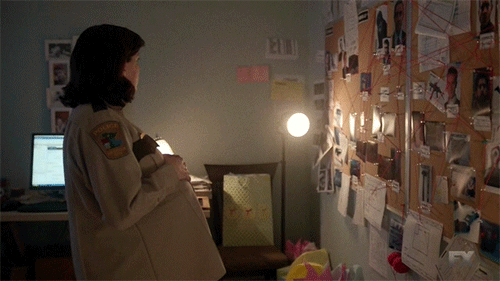
Remember in Romancing the Stone how Michael Douglas's character carried around a picture of a sailboat in order to demonstrate his big-want to own a sailboat? Apparently, he really wants to visit the island Jamie Fox's character dreams about in Collateral.
Every time I see this photo-trope, I groan a little. I'm taken out of the movie as I ponder whether or not they could have come up with a better way to visualize the protagonist's big-want.
So why do I write this trope so much? I'm doing it in the script I'm writing right now!
The reason why this happens so much is because too often it's sadly the best alternative.
Would you rather stall the movie with wistful dialogue about that big-want that's just so big and the protagonist sure sounds wistful about it, doesn't he? No, film is a visual medium. It's full of talismans (yup, plural of "talisman" is "talismans", not "talisman". I looked it up). We'd rather see it than hear it. It's faster. We remember it better.
Would you rather write a dream sequence (sometimes not a bad idea, actually, but potentially overkill)?
Would you rather orchestrate Your protagonist walking past a boat store, or an island store? It's your movie, you can invent stores that don't exist.
Yeah, maybe you can pull off something more inventive on the page. But I imagine that once a film goes into production, and they're looking for ways to save time and money, they see that scene, and think, "Can't he just look at a picture in his wallet so we can cut the new location?"
Sigh.
I say, always strive to not do this trope, even though, yeah, you're going to do it. Because what we don't fight grows, until that tiny wallet photo becomes...
the Crazy Wall.




